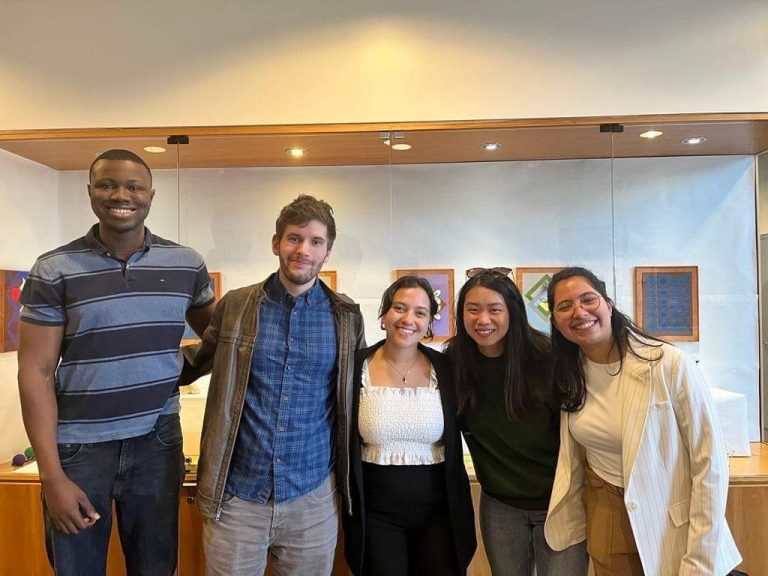Waste Recovery Greenhouse
Tier 2 Capstone SDG Impact Award Winner, 2023-2024
Project members
- Alice Anderson
- Michael Cain
- Ana Palma Florido
- Jonathan-Wilfried Fongang
- Marie-Émilie Germain
Related Sustainable Development Goals
- Goal 2: Zero hunger
- Goal 7: Affordable and clean energy
- Goal 8: Decent work and economic growth
- Goal 9: Industry, innovation and infrastructure
- Goal 11: Sustainble cities and communities
- Goal 12: Responsible consumption and production
- Goal 13: Climate action
- Goal 15: Life on land
About the project
With an increasing demand for cloud computing services, there is an increase in usage of servers hosting data. The data centers that contain the servers occupy a large amount of space, while also dissipating large amounts of heat, contributing to rising global temperatures and climate change. Their heat dissipation forces the data centers to be built in remote areas to reduce residual heat. The challenge is to design energy-efficient data centers that capture the excess heat and service it elsewhere, such as greenhouses that can be used by the community. The implementation of a heat capturing system that puts this recycled heat to use would also allow for the data centers to be built in urban spaces, since heat dissipation would be addressed. Building greenhouses connected to data centers for the community in urban spaces could lead to an increase in employment in cities, closer proximity to said employment, strengthen community involvement, increase number of green spaces, and reduce the contribution to climate change from data centers. This project plans to design new and beneficial changes in technology and environmental care by working with various groups. By teaming up with universities such as Concordia and McGill, academic institutions can develop IT centers that use the excess heat for greenhouses, laboratories, or other campus services, ultimately encouraging a sustainable approach in education. This project is also useful for large companies such as Meta, Apple, Amazon, Ubisoft, and IBM by offering a solution that combines their data centers with green spaces that engages with the community. This project has the potential to make a mark in the North American market, using Montreal’s dynamic tech scene to encourage a community focused approach to technological growth and care for the environment.
